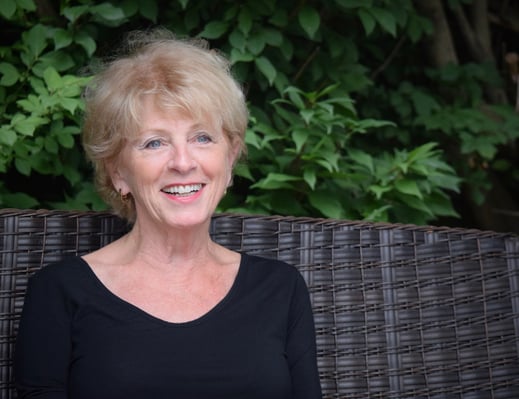There are so many milestones during adolescence: beginning a part time job, starting at a new school, or partaking in a significant cultural celebration, to name a few. Through this time of transitions, perhaps most importantly, we come to a deeper understanding of who we are: our values, beliefs, and our passions. Our Creative Nonfiction Competition asks you to explore a particular memory, event, or milestone that’s been important to you from this time of transitions. And if you can’t decide what to write about, keep in mind Guest Judge Beverly Beckham’s advice and choose something that really matters to you: “Passion is the key. If a writer doesn’t care about his subject, neither will a reader.”
Below, we talk to Beverly about how she persevered as a writer through early years of growth and rejection, the timeless themes that infuse her writing, and tips for writing a top-notch entry. Read on!

You are a columnist for The Boston Globe as well as an author. When did you discover your love of writing, and what has your career path looked like?
I can’t remember when I didn’t want to be a writer. I fell in love with the written word before I could read. But I didn’t begin writing in earnest until I was 30, and I was terrible when I started. I did everything wrong. I used too many adjectives. And I used fancy words when I should have used plain ones. And the wrong fancy words! “The notoriety displayed when he was born,” for example. I wallpapered an entire wall of my little home office with rejection slips. But if you love something enough and you keep at it, you can’t help but get better. Plus, I had nowhere to go but up.
Many of your columns, such as your recent beautiful essay about the magic of rainbows, connect your personal encounters and observations to universal themes and experiences. What draws you to this type of writing?
I’m drawn to the timelessness of feelings. Times change, but feelings do not. Love. Disappointment. Fear. Joy. Grief. Wonder. Loss. A child going off to school for the first time. A mother’s death. A rainbow. Human beings all over the world for all of time have experienced all of these things. We share so much more than what divides us. Writing about our shared experiences helps me to remember common bonds.
What advice would you give to a young writer who wants to get their own personal essays and creative nonfiction published?
I’d tell this young writer not to worry about getting published. To concentrate, instead, on writing, on being honest, on finding the exact right word, or phrase, or metaphor. On being creative. I’d tell this young writer that joy comes not from getting published but from sitting down and writing and rewriting until—and here’s the reward—you know you finally got it right.
Given the wide-range of potential topics, how would you suggest young writers go about choosing a subject for our Creative Nonfiction Competition?
I would suggest that young writers follow their hearts and their passions. A few weeks ago, a 17-year-old who is passionate about sports showed me an essay he wrote about how football, not playing it, just watching it, helped him through a recent bad time. He was specific about why football helped. He was honest. He was funny. He was introspective. His essay made me understand what he was feeling. Passion is the key. If a writer doesn’t care about his subject, neither will a reader.
What are you looking for in a winning entry, and what tips do you have for achieving it?
I’m looking for an essay that will make me care and was written with care. I’m a big believer in writing, then walking away from your work and coming back with a fresh eye. It’s easier to see what to leave in and what to leave out when you’ve let something sit for a while.
Also read your essay aloud. Do you need that word? Is that the word you mean? Hear the cadence. Listen as you read.
And, finally trust yourself and maybe one other person. Writing is not a group project. If you want an opinion, find one person whose option you value. Not three. Not two. Just one.





